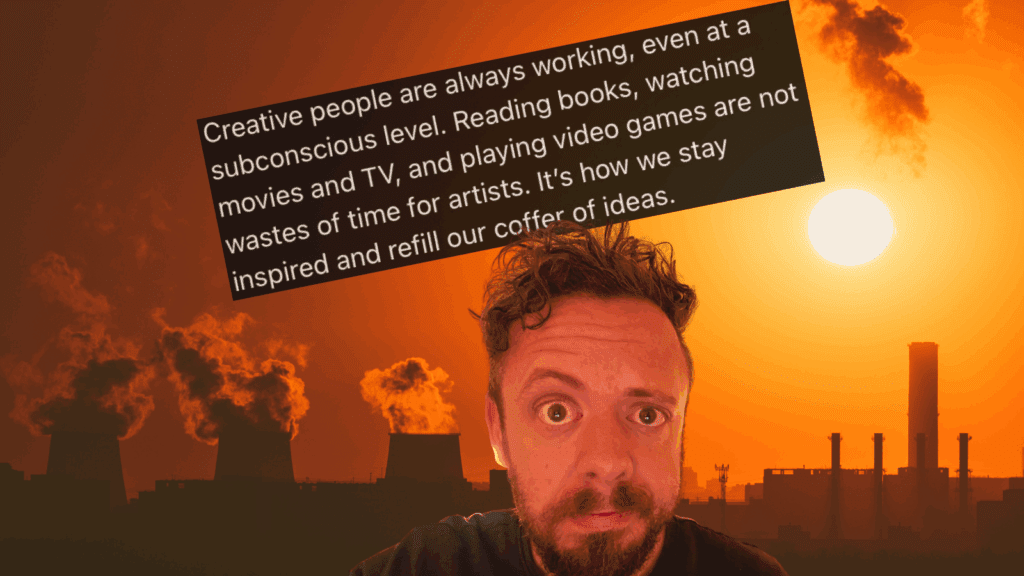In defence of “wasting” time

Are you worn out by the pressure to be useful, always working to prove your worth through productivity?
I saw this post on Threads a few days ago:
“Creative people are always working, even at a subconscious level. Reading books, watching movies and TV, and playing video games are not wastes of time for artists. It’s how we stay inspired and refill our coffer of ideas.”
On one level, it’s a great reminder of how every aspect of life can feed our creativity. Nothing is left out when it comes to the human ability to turn anything into a creative expression. It also hints that creativity is more than an activity. It is a way of being.
Always Working Towards…
But the wording caught my attention. That first line echoes something Byung-Chul Han describes in The Burnout Society in his description of the move from “Discipline Society” to the exhausting pressure of the achievement society. In this world, there is no external boss. Instead, the internal command drives us to work, move forward, and stay inspired and informed. We strive to remain relevant and keep the coffers full, always working for the sake of the “content”.
Of course, we don’t get much context in a short social media post. I don’t imagine the author necessarily intended this reading. Yet the deeper issue is not what was meant but the cultural story this phrasing reinforces.
Do we picture creativity as a mechanical process of input and output, where every activity must justify itself as fuel for future results? Or do we imagine it as a playful unfolding? An ecosystem where ideas germinate beneath the surface and emerge in mysterious and unexpected ways. We notice them, catch them, squidging, and bouncing them around. Not to keep the coffer stocked, but to live differently from the instrumentalised model of human as productive machine.
Fear of Not Being Useful
The fear of wasting time underpins so much of contemporary culture. To do something that looks inefficient or lacking purpose feels like a cardinal sin. But what is a waste of time? That judgement only makes sense against a backdrop where time must be used well. There must be a central vision to serve more or less efficiently.
Yet through history, people have carved out spaces where time is allowed to spill and wander. Rituals, festivals, feasts, and idle gatherings don’t serve a purpose in the way productivity culture demands. They are excess, celebration, and lingering for its own sake. In those moments, life isn’t measured by what it produces but by what it holds in terms of presence, connection, play, and the fleeting beauty of things that don’t last.
The achievement society imposes just such a vision. It drives us to hustle harder and always work to get ahead of the competition. It encourages us to instrumentalise the activities that bring joy. These activities are reframed as sources of input rather than ends in themselves. This is part of Han’s recipe for burnout. We not only struggle to eke out a living but also feel compelled to justify pastimes and hobbies as somehow productive in the eyes of this insidious law.
Creativity is More Than Working
Why do we need the coffer of ideas to be full? What is the purpose of art and creativity in this kind of society? Perhaps it is less about stocking the shelves for future use. Instead, it is more like those ancient rituals of gathering, feasting, and celebrating. A creative life spills over. It wastes time beautifully. It reminds us that the richest things we do are often the least efficient. We talk about the meaning of life as if it hides in some grand idea, but perhaps it lingers in the waste we overlook.



